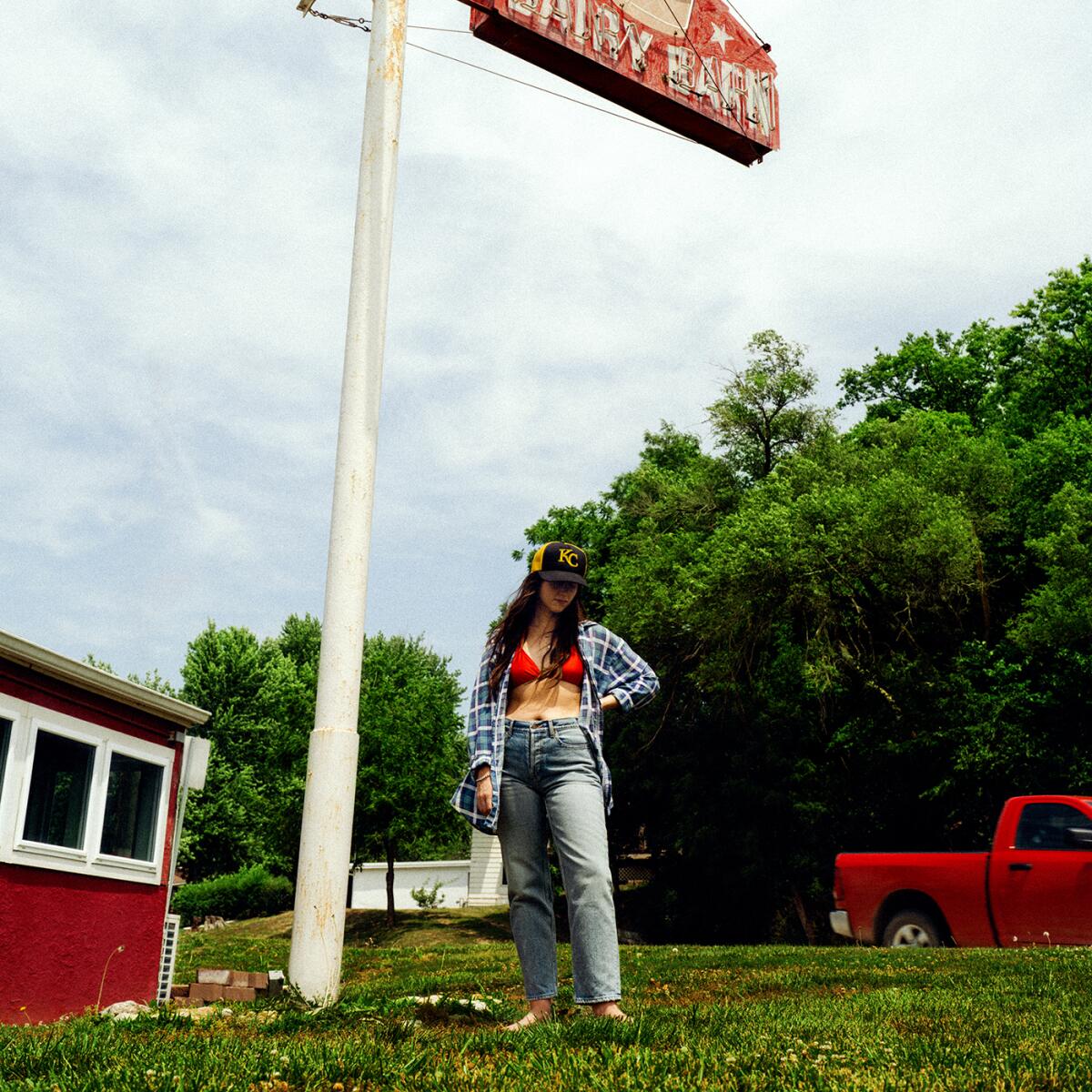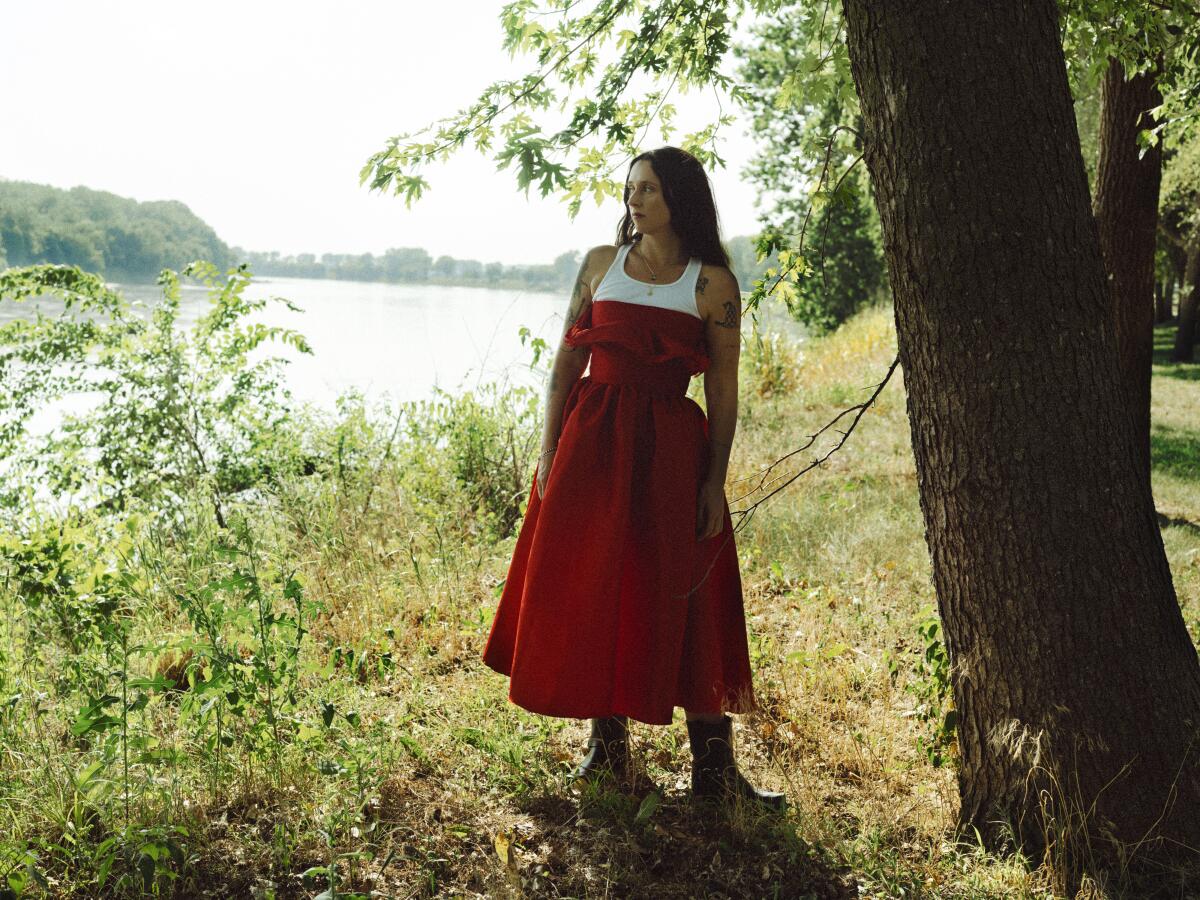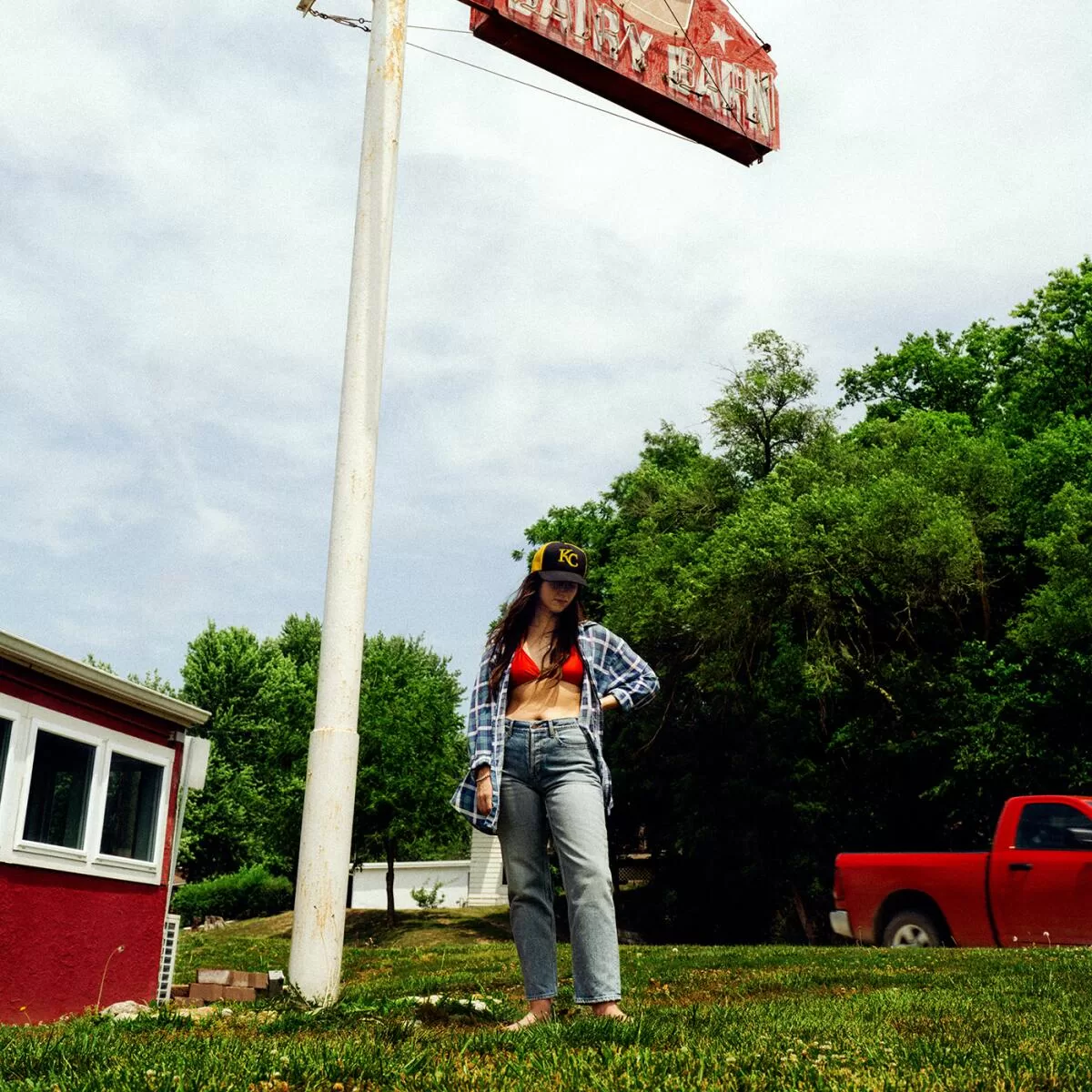For Katie Crutchfield, the songwriter and musician who performs as Waxahatchee, that meant releasing the right album at the right time, even if nothing about that particular time, a.k.a. March 2020, would otherwise be considered “right.”
Since Crutchfield’s 2012 debut “American Weekend,” Waxahatchee has become one of the most beloved acts in indie rock, specializing in incisive, vulnerable lyrics and feedback-drenched power chords. But the fifth album, 2020‘s “Saint Cloud,” was a sharp break from her past work, a set of introspective old-school country songs about recovery and perseverance that earned comparisons to Dolly Parton and Willie Nelson. Looking back, Crutchfield acknowledges she wasn’t sure how it was going to go over.
“I really, genuinely had no expectations for it, because I knew I was making this really concentrated pivot. I finally figured out what exactly I need to do to my songs to make them feel how they’re supposed to feel,” she says. “But because it was a pivot, I felt, ‘I have no idea how my fans are going to feel or if this is going to land [for] people.’ I just know this is what I need to do.’”
“Saint Cloud” was released shortly after the world effectively went into shutdown due to COVID-19. But even though Waxahatchee was not able to tour or do much promotion, the album quickly found an audience that treated its tender songs like healing balms in chaotic times. Before long, “Saint Cloud”— alongside Phoebe Bridgers’ “Punisher” and Fiona Apple’s “Fetch the Bolt Cutters”— became regarded as some of the defining artistic works of the pandemic era, an admittedly bittersweet achievement.
“It felt like people were really listening to the whole record. They had the time and the space to really dig into it,” she says. “Over the course of that 18-month period where no one could really perform or like play shows, it just felt like the love and the appreciation for the record only really grew and grew. So by the time I did perform, my audience had doubled in size. By the end of it, I was like, ‘I’m happy that people have this record.’ It felt like a real act of service.”
She credits Brad Cook — a producer who has worked with the War on Drugs and Whitney but who she’d never met before — with bringing in an outsider’s perspective on “Saint Cloud.” But when it came time to make her new album, “Tigers Blood,” she admits that both of them were feeling daunted by the idea of following up the most beloved work of her career. “We both just were like, ‘we don’t want “Saint Cloud” to seem like a fluke to people,’” she says.
Once the two-week sessions for “Tigers Blood” began at Sonic Ranch recording studios in Tornillo, Texas, Crutchfield and Cook set strict ground rules in order to keep the proceedings as stress-free as possible, with recording beginning at 10 a.m. and a hard cut-off at 6 p.m. Most tracks were cut live with minimal overdubs, and afterward, the proceedings got downright wholesome, remembers drummer Spencer Tweedy.
“Katie was making a lot of salad, and we were eating tons of canned fish because we’re obsessed with this beautiful, fancy canned fish brand called Fishwife,” he says, adding that their meals were enjoyed while watching YouTube rips of “this truly ridiculous show called ‘Supergroup’ on VH1,” in which aging rockers such as Ted Nugent and Sebastian Bach bicker at each other nonstop. “They almost murder each other, and it was funny watching that compared to the dynamic we were all feeling. It’s hard to imagine anything more of a polar opposite.”

(Photo from Grandstand PR)
For a certain kind of listener, Crutchfield had assembled a supergroup of her own, including Brad’s multi-instrumentalist brother Phil and Tweedy, who has been playing professionally with his father, Wilco frontman Jeff Tweedy, since he was a teenager. He first worked with Crutchfield on her side project Plains, and is now a member of her live band. To round out the supergroup, Crutchfield discovered her album’s co-star, the Nugent to her Bach, while attending South by Southwest in 2022. Her sister (Allison Crutchfield of the band Swearin’) and Cook texted her to go see a set by Asheville, N.C., singer-songwriter MJ Lenderman, and after the set “she walked up and introduced themselves to me and I thought that was really cool,” he remembers. “It was like a week or two and Katie messaged me about maybe playing on her record.”
Crutchfield had songs for the next album, but didn’t really have an overall vision when she, Cook and Lenderman got together for an early demo session. The last thing they did before Lenderman left to tour was to sing “Right Back to It,” the album’s lead single and a duet between the fast friends. He remembers her “singing the notes to me that she wanted me to sing. And I looked at her and I was like, ‘yes, OK.’ Then I went into the booth and did something completely different. And it was not, like, intentional, I don’t think.” She didn’t seem to mind, though.
“When we did that, me and Brad were like, ‘I think that’s going to anchor the whole record.’ It was a clarifying moment,” she remembers. “We’re just going to set up in a room and do this the old-fashioned way.”
If “Saint Cloud” was Crutchfield’s spin on traditional country music, “Tigers Blood” is her version of Southern rock, taking cues from left-of-center artists such as R.E.M., Drive-By Truckers and her songwriting idol, Lucinda Wiliams.
Crutchfield grew up in Birmingham, Ala., and in many ways, her last two albums have found her reclaiming her Southern heritage, after she purposefully avoided those influences in her music for the early part of her career. She grew up listening to the Chicks and her “Queen” Shania Twain, before discovering artists like the Strokes, Rilo Kiley and the Velvet Underground. (She has a tattoo of the Rilo Kiley album “The Execution of All Things” on her arm. While she has hung out with lead singer-turned-solo act Jenny Lewis many times, the two have never discussed it.)
After playing in the punk band P.S. Eliot at the University of Alabama with her twin sister Allison, she broke out on her own with Waxahatchee’s 2012 debut album “American Weekend.” Her 2013 album “Cerulean Salt” won praise from outlets such as Pitchfork and Stereogum, and she signed with the esteemed indie label Merge for the 2015 follow-up “Ivy Tripp.” Eventually, she earned enough of a following that she was able to quit her job as a nanny for a family in Philadelphia. (She used to follow the now grown-up kids she looked after on social media; she has no idea if they know about her musical career.)

If “Saint Cloud” was Crutchfield’s spin on traditional country music, “Tigers Blood” is her version of Southern rock, taking cues from left-of-center artists such as R.E.M., Drive-By Truckers and her songwriting idol, Lucinda Wiliams.
(Molly Matalon)
After the release of 2017’s “Out in the Storm,” she moved to Kansas City to live with her now-partner, Kevin Morby. When they toured together before they were a couple, he told her, “you know you’re a country singer, right?” It was also around this time period that she decided to get sober, and this decision and the feeling of healing and growing into your 30s informed much of “Saint Cloud.”
“I always knew deep in my soul that I was going to have to quit drinking. I always knew this is chaotic and doesn’t work for me. And it was so hard for me to eventually put it down,” she says. “But my life just cleared up and cleaned up.”
She says that while she loves “Saint Cloud,” “I was riddled with anxiety and I was really trying to get to know myself after all these years of heavy partying. It took me a long time to write those lyrics.” In contrast, “‘Tigers Blood’ really flowed, and it feels razor-sharp. There’s definitely a difference in experience.”
“Saint Cloud” found her reconciling with who she was becoming, whereas “Tigers Blood,” which is named after her favorite snow cone flavor from when she was a child, is about how the South and her upbringing shaped who she is. On “365,” she writes about “my relationships with other addicts in my life, and how codependency is my biggest disease in life,” she says. “And I’m healing from it all the time. And so that song is very much about a relationship like that in my life. It’s angry. But there’s also an air of sort of gentleness and forgiveness and releasing someone in that song.
“It takes a long time and a lot of work to be able to fully let go of resentment,” she adds. “I’m definitely not there yet, in a lot of my relationships.”
This is a change for Crutchfield, who admits to having a very “black-and-white thinking” on human relationships in her early work.
“I think my early records, they’re so melodramatic, and that’s no shame. I love those records, but that’s how I was at the time. Everything was really amazing or really, really sad or really, really angry,” she says. “And I think now I have a lighter touch when I’m describing where I’m at.”
She’s done a lot of growing up in her decade-plus career, and she doesn’t expect that to end any time soon.
“I’m looking forward to the journey,’ she says. “We’ll see in the next decade, where I’m at.”
